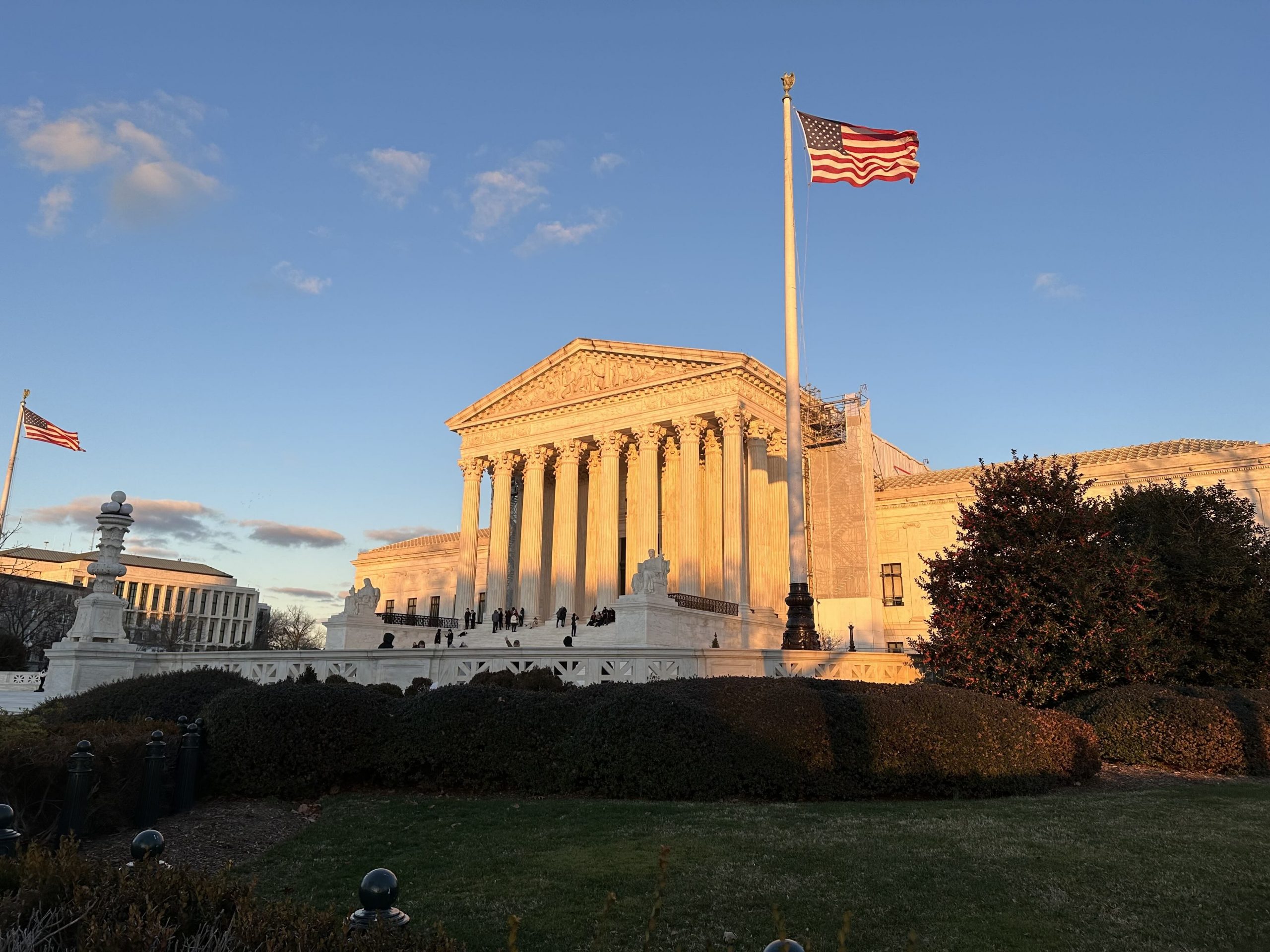The Emerging Supreme Court Fight at the Family’s Front Door
This is designated a family law blog but events taking place on the front door of the U.S. Supreme Court could begin to affect events taking place at your front door. This month two Supreme Court docketing events illustrate the point.
In one corner of the legal universe is the Indiana based family of an adult child. When that child was 16 he professed to have an interest in changing his gender identity, a thought inimical to the religious values of his parents. This discussion became heated and the child asserted his parents were threatening, causing him to consider self-harm. The local child service authorities investigated and identified an eating disorder, withdrawal from school enrollment and disengagement from therapy. The child stated he did not feel safe at home. This was done as part of an investigation of child abuse and, based on the initial assessment, the child was removed from his parent’s home. A few months later the parents and the state agency agreed to withdraw the allegations of abuse/neglect. In theory, that would be end of case. But here the Indiana judge presiding over the matter decided that the child should remain outside his parent’s home. In addition, the court admonished the parents not to discuss gender issues with their son while visiting with him. The matter was appealed, and the trial court order was affirmed. Essentially, the Indiana courts held that reunification was not possible in a world where the parents did not accept their son’s gender choice. The courts addressed this as a safety issue. The parents have now sought the intercession of the U.S. Supreme Court asserting that this is an undue invasion of their rights to parent their child and to their first amendment right to say what they wish to their child about his gender choice.
In this deeply divided political and social atmosphere, the “world” has gotten into the fray known as M.C. and J.C. v. Indiana Department of Child Services. (Supreme Court Docket 23-450). In the view of the parents and those supporting them, this is an undue invasion of how they raise someone who is unquestionably their child. In this setting, the appellants correctly note that claims of “abuse” were voluntarily dismissed by the state. Absent “abuse” the state has no authority to govern their right to parent or rule that their parenting is not in the child’s best interests. As this writer read the amicus brief of a group called Advancing American Freedom, Inc. in support of the Petitioner parents, there is certainly a hearty supply of apple pie in the text. And I say that with a measure of respect for the brief I read.
Meanwhile, in May 2023 Idaho passed HB71, a law making it a crime to provide gender affirming care to minor children. An Idaho teenager and her parents have filed suit claiming this criminal statute is an unconstitutional intrusion upon their collective decision to promote their child’s gender choice. In December 2023 the U.S. District Court for Idaho held that Idaho’s “Vulnerable Child Protection Act” was an unconstitutional impediment to the freedoms of both parents and their children to choose gender affirming care even though, technically, the crime can only be committed by health care professionals who provide treatment. They argue the law is an unwarranted intrusion upon the right of the citizens to manage the “care, custody and control of their children.” Troxell v. Granville, 537 U.S. 57 (2000). A statute that confines medical treatment to the sex of the child at the time the child is born is classifying and criminalizing treatment options based upon sex. Thus HB 71 “was intended to single out transgender children based solely upon their transgender status.” Citing a 1979 U.S. Supreme Court decision, Parham v. J.R. the District Court noted that parents are invested with the right to select medical treatment their children receive subject to the independent judgment of the medical community. 442 U.S. 584 (1979). In Parham, the Court held that while the in-patient psychological treatment the parents sought was controversial, it was also medically accepted. At the same time, because it involved involuntary commitment of the child, the ruling acknowledged that the child had a right to be heard as well. In the Idaho case the gender treatment in controversy had wide-ranging medical support and had the approval of both parents and their child.
The Idaho district decision notes that the Sixth and Eighth Circuit Courts of Appeal have ruled that states can intervene in these medical decisions. Williams v. Skrmetti, 83 F.4th 460 (6th Cir 2023) and Eknes-Tucker v. Gov. of Alabama, 80 F.4th 1205 (11th Cir 2023). Because the 9th Circuit has not addressed this issue the District Court was not bound by the other circuit rulings. The Idaho ruling in Poe v. Labrador has been appealed to the appropriate circuit court.
This makes for fascinating constitutional debate where states have decided to exercise authority over how parents govern the sexual orientation of their children and what treatment, if any, they can secure for it. Meanwhile, the record in both cases reminds us that at the core of these fascinating “constitutional” issues are two very vulnerable and perhaps suicidal sixteen-year-olds. Anyone familiar with the history of medicine must acknowledge that medical evaluation and treatment can often get things wrong. But the judicial system has almost nothing to contribute to these debates except enduring respect for a constitution that never contemplated decisions of such delicacy would be before courts in America.






